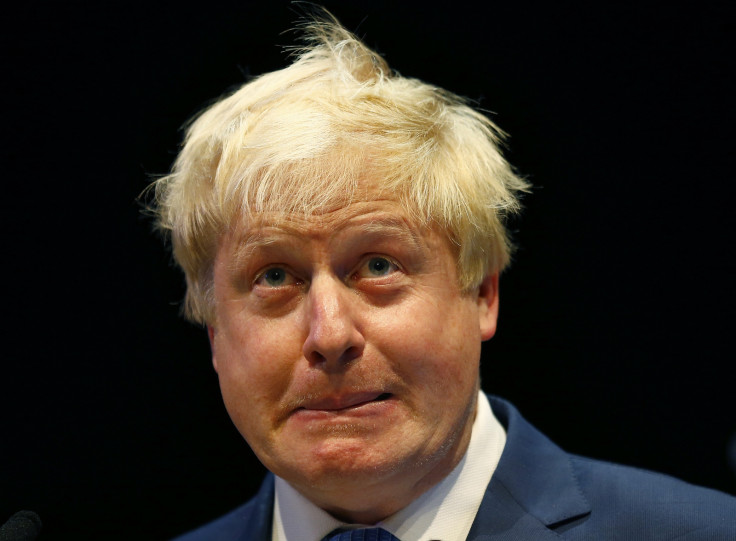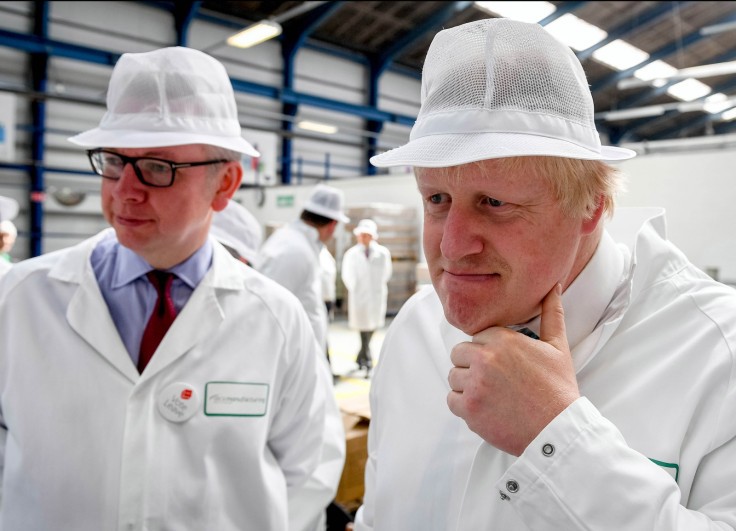Boris has a slogan but no plan - a vote to Leave is a vote for chaos
Brexiters have had months to work out answers about what happens next. Why haven't they?

I've just been asked by the BBC to head to the Elstree studios tomorrow night to be one of their early contributors as polls close. I said yes, partly because when I am nervous – which I will be, and have been for weeks now – the only way I can deal with it is to keep busy.
The last time I went to Elstree was on general election night last year. Alongside me as we waited to hear the exit poll was one Michael Gove. When the exit poll was announced at 10pm – the Tories heading for a win but not big enough for a majority – Gove said to me "if that is true it is at the upper end of our expectations". He was not expecting to win. I must confess – I was expecting Labour to lose.
This time it seems to be Gove who is confident about the outcome and I am the one with the nerves.
I am very suspicious of the polls and suspicious that the markets are just moving in response to them. The bookies do get it wrong. They did at the election. Like Gove.
The reason I thought Labour would lose that election was because for some time, everywhere I went, I was hearing the same things coming back from many of those members of the public who do not live in the political bubble. They couldn't always put their fingers on the reasons, but they were not having us back.
Too much of this referendum, both the campaigns and the media coverage, has been about the bubble. But here is the thing – in any campaign there are people who have decided and will never change their mind. I am one of them. I would have voted Remain whatever because I feel the EU has been good for the UK and good for the world. Long after David Cameron, Jeremy Corbyn and all of us have gone, tomorrow's is a decision Britain must live with for a long, long time. Many others, millions indeed, are firm and long-term deciders for Leave. I don't disrespect them (not all of them anyway). I just disagree with them.
But in the middle are millions of people even now still making their minds up. There is no one thing that will unite them in how they make their decision. Everyone will have their own process and their own reasons. Many will decide tomorrow morning. Some will decide tomorrow night.
Unless they somehow sneaked onto Tim Peake's spacecraft, they must have caught something said by the leading figures on both sides. But what is happening right now is the most wonderful part of democracy in action. People thinking. People talking to friends and colleagues and relatives. And people deciding. Anyone who tells you they know what all these people are thinking is talking nonsense. None of us know. We only know what we hear and see in our own lives.
What I see and hear in my own life is that many many votes remain up for grabs and they won't simply be won by politicians on the telly or newspapers on the doormat at this stage. They will be won person to person, friend to friend, colleague to colleague. Anyone who cares about this debate has a role to play now. Not just in voting, but in persuading, in the final few hours left.
Also on the media front I have just been told I am taking part in the last section of tonight's Channel 4 debate programme. Apparently there are going to be half-a-dozen two-a-side panels and Alex Salmond and I will be teaming up for Remain on the question 'what happens on Friday if we leave?'.
Anyone who cares about this debate has a role to play now. Not just in voting but in persuading in the final few hours left.
No doubt by the time they get to us we will have heard lots more about the economy, sovereignty, democracy, immigration and, no doubt as Nigel Farage is there, about his infamous poster too.
So what will be left to say? Maybe not a lot. 'On verra,' as we committed Europeans sometimes say. But to my mind one of the most telling moments of this entire campaign was when Ukip's Diane James, asked what would replace the trade arrangements of the economic miracle that is the single market, said 'we just don't know.'
The truth is, the Leave campaigners have had weeks, months, years to work out their answers to the difficult questions about what happens next.

This decision, if we leave, is several general elections' worth of change. But have we seen a manifesto? Have we seen a plan? Do we know the answers to questions about how our economy would change if we are out? Can we guarantee there will be no extra taxes and tariffs? Do we know what will happen to the border at the French side of the Channel Tunnel? Why would the French continue to manage our own border in their own country at considerable cost and inconvenience? How will the Leave side deliver on their promise to end free movement of people without bringing back controls and customs to the border between North and Southern Ireland? John Major and Tony Blair were not scaremongering when they warned of the economic and security risks – the risks are real.
There are so many risks. The immediate risk to sterling and meltdown in the markets. That is not just moneymen shifting cash. That is about confidence in our economy. It is about jobs and pension funds.
The subsequent risk of recession on which so many domestic and international organisations are united in presenting is a real danger.
The risk to the Union if English votes lead the UK out but Scots vote in, giving the SNP every right to have another referendum, and every chance of winning it. The risk then to our place at the top table of the UN.
The risk to our security. Yes, a former top soldier came out for Leave this week. But every serving head of all the agencies involved in combating terrorism say leaving the EU would weaken our defences against terrorism.
The control they promise is an illusion. There is nothing controlled about the economic and political chaos that a Leave vote will unleash.
The risk that Vladimir Putin will open the champagne. Wales did a great job bringing Russia down to earth after their state-backed hooliganism in Marseille. But if we vote to come out Putin wins a much bigger prize than a football match. He wins a massive step forward in his attempts to destabilise Western Europe, a major strategic goal.
If we vote to come out Putin wins a much bigger prize than a football match. He wins a massive step forward in his attempts to destabilise Western Europe, a major strategic goal.
I could go on and on. The risk to the NHS from a shrunken economy. The risk to universities. The risk to tourism. The risk to our standing in the world. The risk of the rise of the far right.
All of this will be dismissed as Project Fear by the Farage-Johnson campaign. But there is a lot to be scared about if we come out. And the reason I am nervous is because despite the weight of expert argument on the economy and security being so heavily in favour of Remain, so many seem willing to say 'oh woteva ... Let's take back control.' But a slogan is not a plan.
I am now off to prepare for Channel 4 and work out if I can say risk as often as they say take back control. The risks are real. The control they promise is an illusion. There is nothing controlled about the economic and political chaos that a Leave vote will unleash.
Finally, another telly memory. The day after the election I did BBC Question Time. The first question was 'will the UK leave the EU in this Parliament?' I said I hoped not. I said I was confident the British people would save the politicians from themselves. I hope I was right. However, I feel less certain that Remain will win than I was that Labour would lose. Hence the nerves. Hence the determination to keep going up to complete strangers and, if they are undecided, trying to persuade them.
Alastair Campbell is a British journalist, broadcaster, political aide and author, best known for his work as Director of Communications and Strategy for Prime Minister Tony Blair between 1997 and 2003. He is the author of two books on mental health and is an ambassador for Time to Change.
© Copyright IBTimes 2025. All rights reserved.





















